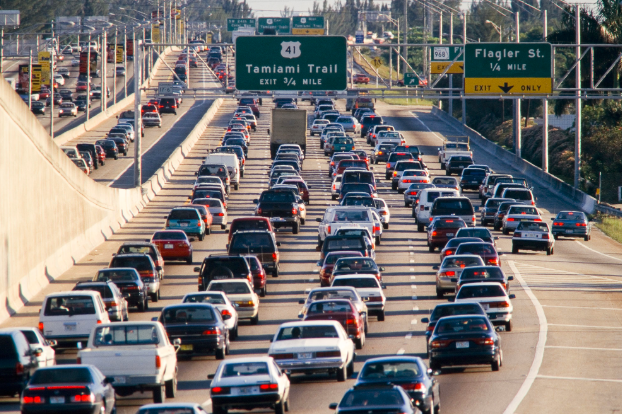
Photo: Green Car Reports
By Alexandra Patel and Monica Medina
Twenty-four governors from across the country, including three Republicans and governors from states that voted for President Trump in 2016, have banded together to oppose one of Trump’s biggest climate policy rollbacks: the weakening of clean-car standards that would have greatly improved air quality in the U.S. as well as massively reducing greenhouse gas emissions. The governors are calling for the Trump administration to require efficiency standard improvements every year, as well as asserting California’s legal right to implement its own clean air rules.
- The Governors argued that “[s]trong vehicle standards protect our communities from unnecessary air pollution and fuel costs, and they address the largest source of carbon pollution in the United States,” according to a New York Times report.
- It is not just politicians, but automakers as well who are opposed to the proposal and fearful of the repercussions it will bring in the future. In a signed letter from 17 companies, including Ford, General Motors, Toyota and Volvo, automakers urged President Trump to soften his approach and instead set a standard that is “midway” between Obama rules and the proposed rollback.
Why This Matters: In its attempts to garner support for the rollback, the EPA has argued that this proposal will only cause an increase in a small share of the global total of carbon emissions, and at the same time will allegedly improve auto safety and affordability. These arguments are disingenuous because EPA presents a false choice. This policy reversal must not be viewed in isolation. Instead, this rollback will increase risks to life and property in the short and long term, and it robs consumers of a choice to use their purchasing power to make meaningful reductions in global emissions and provide a more sustainable and secure future for themselves and their children. Each key climate policy rollback by the Trump administration escalates the climate crisis and has far-reaching consequences – globally and generationally — for today and for generations to come.
A Freeze on Clean Cars: Taking effect in 2020, this Trump proposal would get rid of the federal requirement that new cars and light trucks must become more fuel efficient on average every year. The Obama administration mandated that new cars and trucks should average around 43 miles per gallon by 2025. In its rule reversal, the Trump administration put a freeze on the fuel-economy standard at about 29 miles per gallon until the same year. The proposal would also revoke California and allied states’ ability under the Clean Air Act to set their own, stricter standards.
Greater Green House Gas Emissions:
- The Trump plan will result in an increase of US oil consumption by 126,000 to 283,000 barrels per day in 2025, depending on oil prices, according to a study by The Rhodium Group.
- The same study reports that it also would, on a cumulative basis, increase US CO2 emissions by between 321 and 931 million metric tons between 2022 and 2035.
- The increase in annual CO2 emissions resulting from this proposal by 2035 would be larger than the total national annual emissions today of 82% of the countries on earth.
- Labor groups argued that the Obama administration’s fuel efficiency standards would have supported nearly 300,000 jobs in developing and building fuel-efficient technology for cars.
July 10, 2019 » air pollution, Clean Car Rule, climate change, CO2, fuel efficiency, fuel efficiency standards, greenhouse gasses


